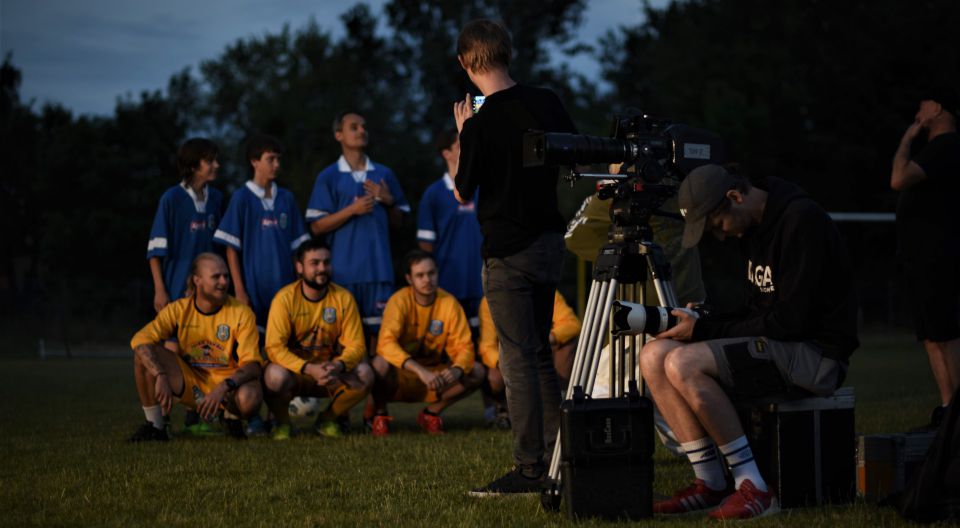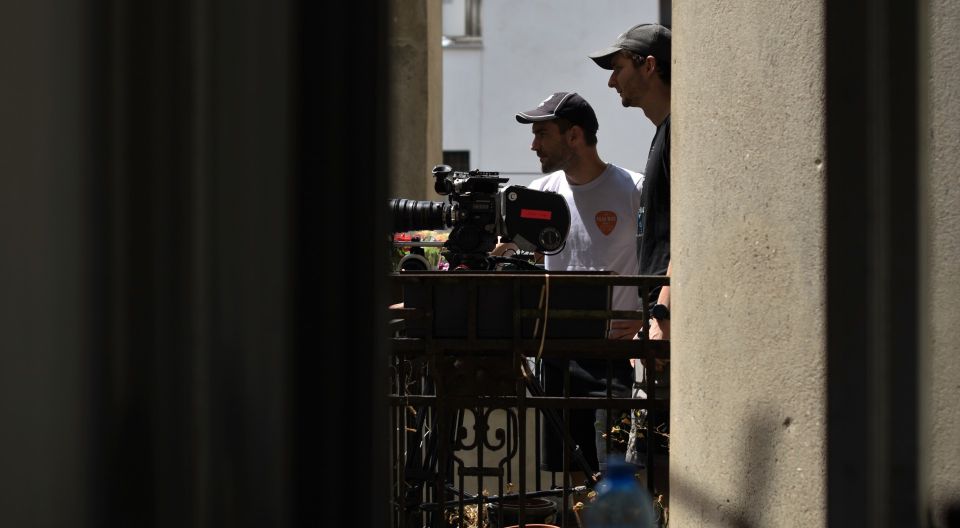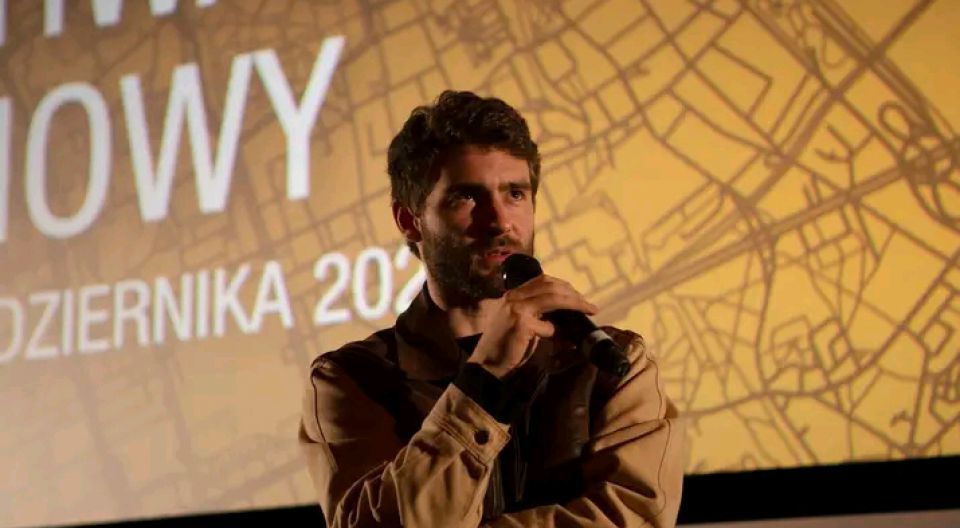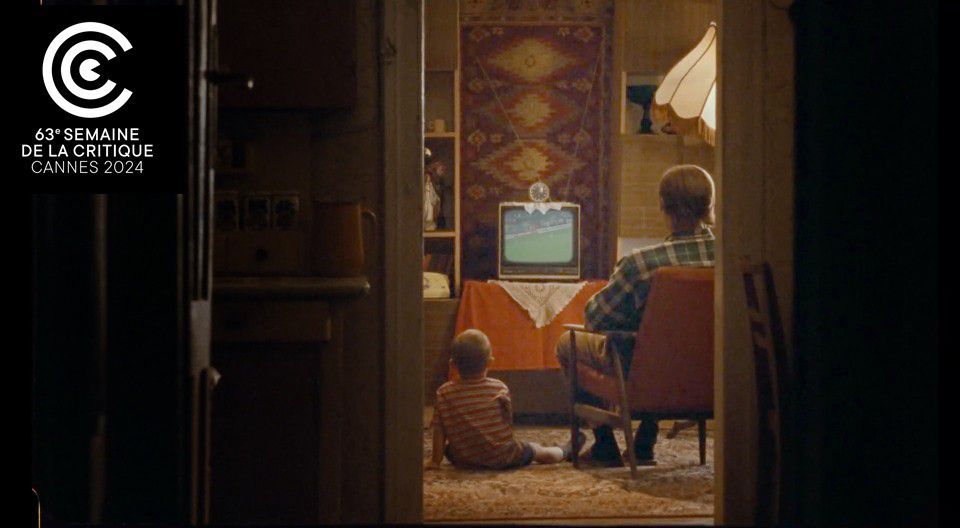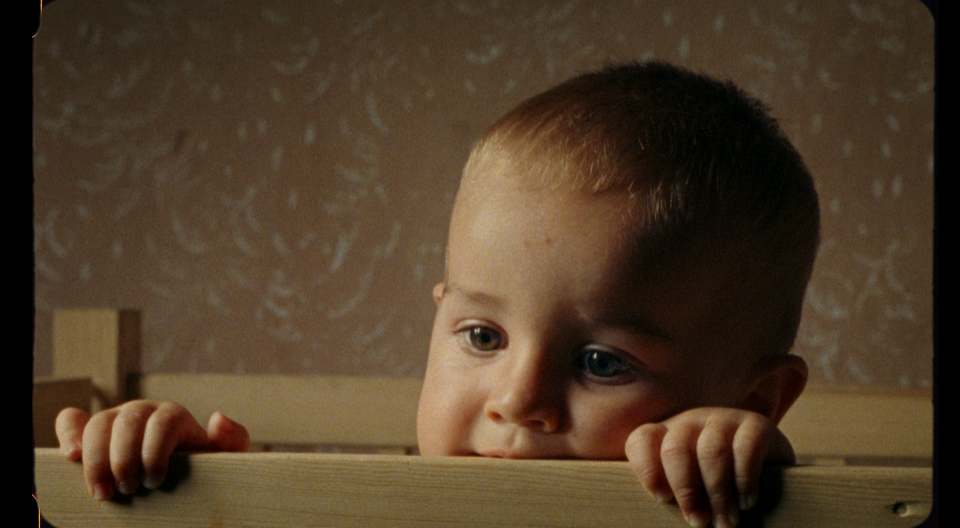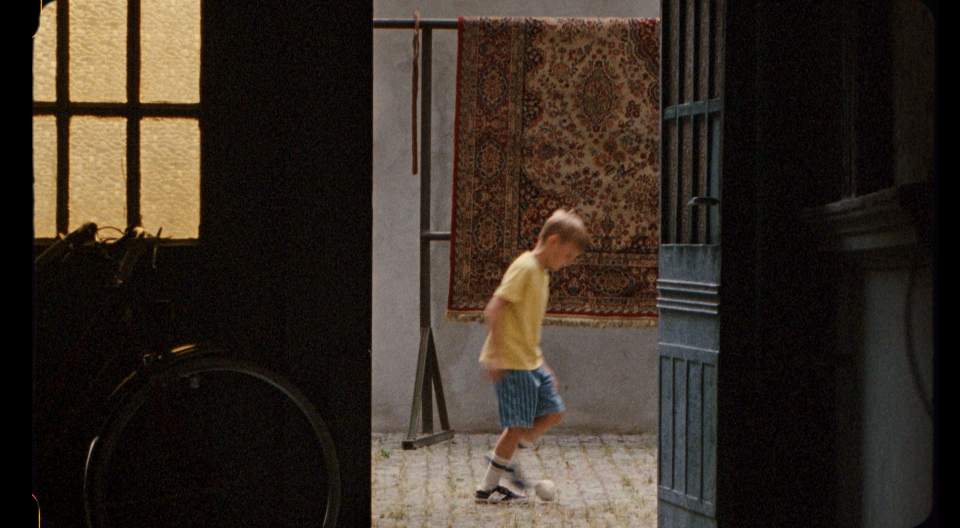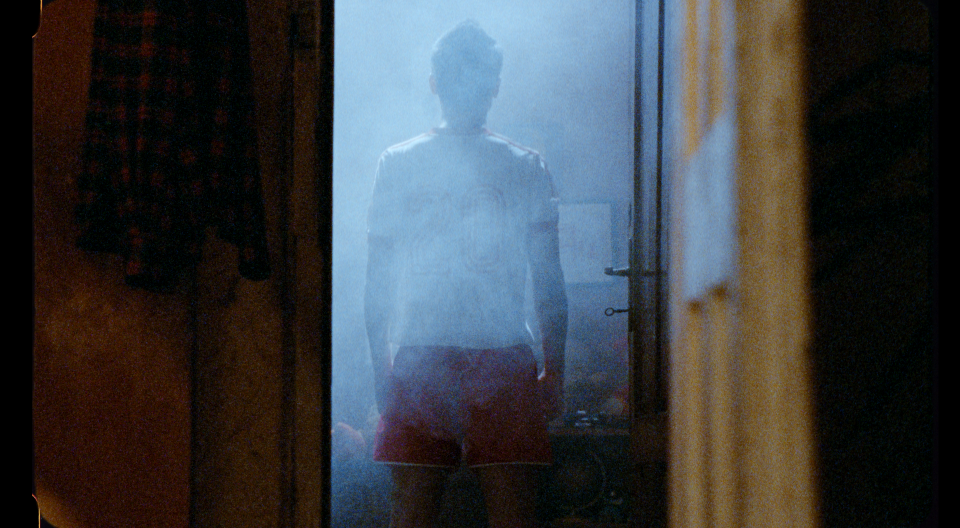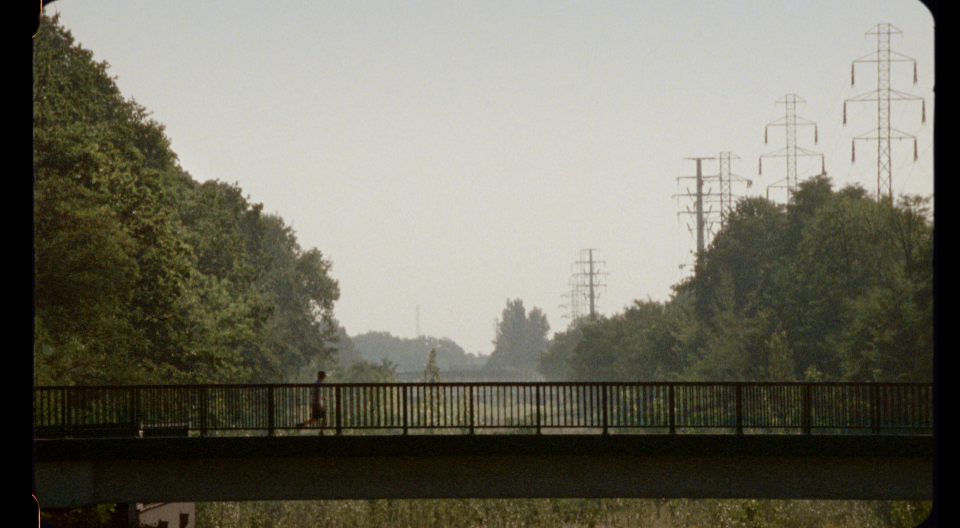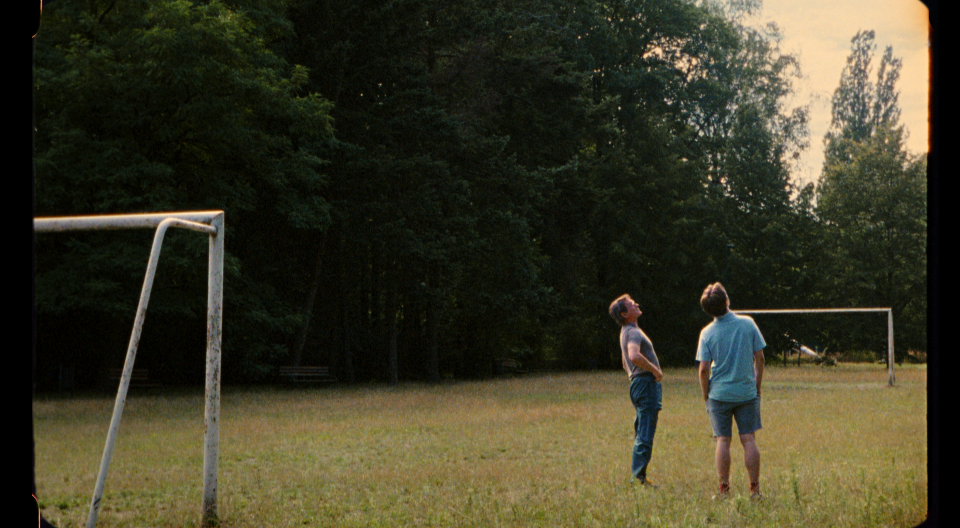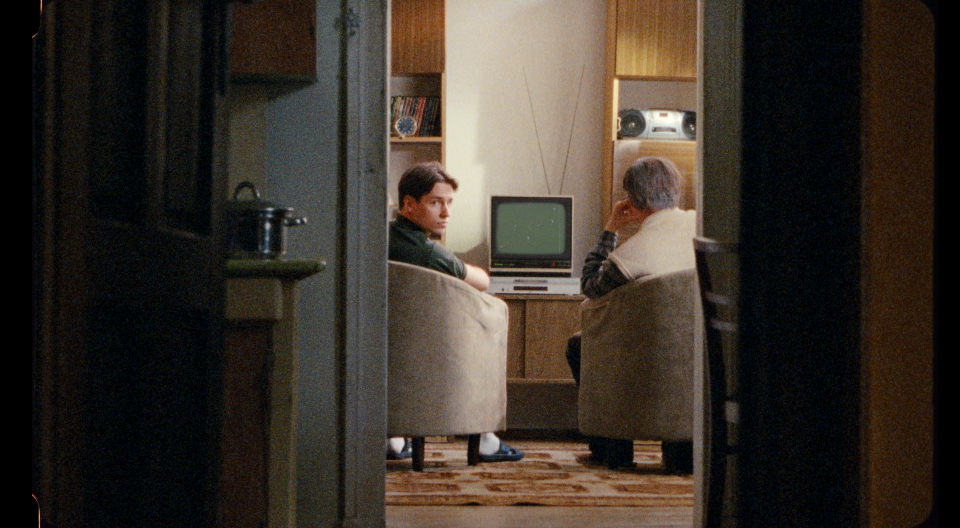15.
05.
2024.
Department
PhD
PhD
Jan Bujnowski is in the School's representation at the Semaine de la Critique IFF in Cannes. The audience will see his film "Dancing in the Corner".
He tells us about football, film and his emotions just prior to Cannes.
After the fall of communism in 1989, colour TVs are no longer a luxury item in Poland. Screens in Polish homes start to reflect the world outside the window to a larger extent. But is this reality really colourful?
This is what the film synopsis tells us about the film. We will reveal a veil of secrecy. There is a little boy. There's Dad. There is a TV and there are national team matches. And goals that cannot be seen... This is a film about both football and life.
Jolanta Karpińska (School Public Relations Officer) - Do you play football?
Jan Bujnowski – I play, I have played for as long as I can remember and I still play to this day. Physical activity helps me maintain mental balance. I also like this sport as a dramaturgical phenomenon. Football itself is not the most interesting, but when you add an additional layer to it, it becomes very interesting. I like how Marek Bieńczyk writes about football, he sees more in this sport than it probably has in it.
JK – So "Dancing in the Corner" contains autobiographical elements? JB – Certainly, yes. These are the beginnings of scenes, small ideas. I can't remember those noisy TVs, interrupted broadcasts, my film takes place in the early 1990s. But I remember when my brother and I watched matches via Internet streaming - the signal there also cut out at key moments, often when goals were being scored. At that time, we explained it by the high viewership. Perhaps I came up with the idea for "Dancing in the Corner" because of these memories?
JK – How was the film which will be seen by Cannes IFF viewers in a very prestigious section dedicated to the work of young international filmmakers made?
JB – I am a student at our Doctoral School. The film was to be made thanks to a doctoral grant, the amount of which was PLN 15,000. Initially, I thought I could make a film for this amount of money. However, reality quickly made me realize that my assumption was wrong.
JK – And what do you do in such a situation?
JB - You still have to believe in your idea, ask for favours and support. And so I did. Almost everyone in the film crew worked absolutely for free. I gathered my family and friends around this film. The father is played by my Father. My nephews play roles of the children. The support of my family and friends was invaluable. I owe them a huge debt of gratitude. Without them, I would only be left with an idea on paper.
JK – You directed your dad, there were members of your family on the crew. What was that experience like?
JB – They don't have much in common with film so for them it was an adventure, a new experience. As for the role of the Father - some of the scenes in my film result from autobiographical threads, so for me personally, it was important that my Father played the Father. For me, it was natural, I think it was easier for me to shoot these scenes with him rather than with someone else.
JK – The visual layer of this film takes us back in time to the 1990s. How was this achieved?
JB – The film was made on filmstock which expired 25 years ago. Of course, I could add some ideology to it, but the answer is simple - this filmstock was cheap, I bought it on German eBay. The budget dictated this. Of course, using such filmstock involves risk, but we did tests which were promising and we decided to use it. We are satisfied with the result.
JK – How do you remember the shoot of "Dancing in the Corner"?
JB - I remember the good atmosphere. I made sure that working conditions were good, that people who devoted themselves to this film felt appreciated and that they also got something for themselves from this adventure. I have the impression that we managed to create an almost holiday atmosphere.
JK – You're going to Cannes soon. What emotions accompany this trip to one of the most important film festivals in the world? Especially since you are going there not as viewers, but as the creators of a film competing in the programme?
JB - I'm really glad. This is a kind of reward for the efforts of many people. They worked on something that now someone will watch, and at a festival like this. I'm happy to be able to watch films there, also in connection with the classes I run at our school (analysis of short films - editor's note). I have always watched them with a delay, now I will have the opportunity to watch them on site, talk to the filmmakers, meet people who are at a similar stage of their career path - it's very interesting for me. I will avoid red carpets, this is not the place for me. I have no special goals or expectations for this festival. I feel happy and have a unique opportunity to thank my team.
JK – And what after Cannes? What are Jan Bujnowski's film plans?
JB – I'm in the Doctoral School, and to graduate I have to make three short films. "Dancing in the Corner" is the first one; it absorbed me a lot in terms of time, organization and mind. I did a lot of things on this film myself, which also has its advantages - I appreciate more the hard work of the people working on the film. It's good for the director's ego because you talk differently later with the people you worked with. What next after "Dancing in the Corner"? I will probably be making two films in parallel, that's the assumption. I want my films created at the Doctoral School to be different. With this one I was confident, in the next ones, I would like to face something that is a challenge for me, something that is not natural for me. I reject ideas that come too easily.
JK – There is also your academic life – the life of a lecturer. How do you find it?
JB - As part of the Doctoral School, I conduct classes with students in which we analyze short films. I try to download the latest things which seem interesting to me. We try to take them apart and analyze how they were made. It's not up to me to grade these classes, it's the students' job. I like them and run them with great pleasure. I hope I’ll be able to keep doing this.
JK – What about a full-length feature?
JB – Sure I would like to face that, but I think it's not the time yet. Besides, I like the form of a short film. I watch more interesting short films than full-length ones. Of course, it's also a matter of decision - a short film means fewer possibilities, budgets, different distribution, but honestly - I don't really care about it. The short length allows you to react faster to phenomena and events. It has its advantages.
JK – What shall I wish you, then?
JB – Less stress, although I'm still working on it. Maybe no pressure? Creative freedom? "Dancing in the Corner" is a film that was good to work on precisely because I didn't feel any pressure, I felt independence.
JK - Independence, lack of stress and beautiful goals. Not only in Cannes.
Thank you for the interview and we’re keeping our fingers crossed for you.
You can also read about the film "Dancing in the Corner" screening at the Semaine de la Critique in Cannes here: https://www.filmschool.lodz.pl/en/news/2813,taniec-w-nbsp-narozniku-w-nbsp-semaine-de-la-critique-ca...
About the film at festival website: semainedelacritique.com/en/edition/2024/movie/taniec-w-narozniku
The film's producer is INDEKS Film Studio.
photos 1, 2 – production photos from the set by Mateusz Kosman photo 3 - Jan Bujnowski
photos 4 - 10 – stills from the film "Dancing in the corner"
After the fall of communism in 1989, colour TVs are no longer a luxury item in Poland. Screens in Polish homes start to reflect the world outside the window to a larger extent. But is this reality really colourful?
This is what the film synopsis tells us about the film. We will reveal a veil of secrecy. There is a little boy. There's Dad. There is a TV and there are national team matches. And goals that cannot be seen... This is a film about both football and life.
Jolanta Karpińska (School Public Relations Officer) - Do you play football?
Jan Bujnowski – I play, I have played for as long as I can remember and I still play to this day. Physical activity helps me maintain mental balance. I also like this sport as a dramaturgical phenomenon. Football itself is not the most interesting, but when you add an additional layer to it, it becomes very interesting. I like how Marek Bieńczyk writes about football, he sees more in this sport than it probably has in it.
JK – So "Dancing in the Corner" contains autobiographical elements? JB – Certainly, yes. These are the beginnings of scenes, small ideas. I can't remember those noisy TVs, interrupted broadcasts, my film takes place in the early 1990s. But I remember when my brother and I watched matches via Internet streaming - the signal there also cut out at key moments, often when goals were being scored. At that time, we explained it by the high viewership. Perhaps I came up with the idea for "Dancing in the Corner" because of these memories?
JK – How was the film which will be seen by Cannes IFF viewers in a very prestigious section dedicated to the work of young international filmmakers made?
JB – I am a student at our Doctoral School. The film was to be made thanks to a doctoral grant, the amount of which was PLN 15,000. Initially, I thought I could make a film for this amount of money. However, reality quickly made me realize that my assumption was wrong.
JK – And what do you do in such a situation?
JB - You still have to believe in your idea, ask for favours and support. And so I did. Almost everyone in the film crew worked absolutely for free. I gathered my family and friends around this film. The father is played by my Father. My nephews play roles of the children. The support of my family and friends was invaluable. I owe them a huge debt of gratitude. Without them, I would only be left with an idea on paper.
JK – You directed your dad, there were members of your family on the crew. What was that experience like?
JB – They don't have much in common with film so for them it was an adventure, a new experience. As for the role of the Father - some of the scenes in my film result from autobiographical threads, so for me personally, it was important that my Father played the Father. For me, it was natural, I think it was easier for me to shoot these scenes with him rather than with someone else.
JK – The visual layer of this film takes us back in time to the 1990s. How was this achieved?
JB – The film was made on filmstock which expired 25 years ago. Of course, I could add some ideology to it, but the answer is simple - this filmstock was cheap, I bought it on German eBay. The budget dictated this. Of course, using such filmstock involves risk, but we did tests which were promising and we decided to use it. We are satisfied with the result.
JK – How do you remember the shoot of "Dancing in the Corner"?
JB - I remember the good atmosphere. I made sure that working conditions were good, that people who devoted themselves to this film felt appreciated and that they also got something for themselves from this adventure. I have the impression that we managed to create an almost holiday atmosphere.
JK – You're going to Cannes soon. What emotions accompany this trip to one of the most important film festivals in the world? Especially since you are going there not as viewers, but as the creators of a film competing in the programme?
JB - I'm really glad. This is a kind of reward for the efforts of many people. They worked on something that now someone will watch, and at a festival like this. I'm happy to be able to watch films there, also in connection with the classes I run at our school (analysis of short films - editor's note). I have always watched them with a delay, now I will have the opportunity to watch them on site, talk to the filmmakers, meet people who are at a similar stage of their career path - it's very interesting for me. I will avoid red carpets, this is not the place for me. I have no special goals or expectations for this festival. I feel happy and have a unique opportunity to thank my team.
JK – And what after Cannes? What are Jan Bujnowski's film plans?
JB – I'm in the Doctoral School, and to graduate I have to make three short films. "Dancing in the Corner" is the first one; it absorbed me a lot in terms of time, organization and mind. I did a lot of things on this film myself, which also has its advantages - I appreciate more the hard work of the people working on the film. It's good for the director's ego because you talk differently later with the people you worked with. What next after "Dancing in the Corner"? I will probably be making two films in parallel, that's the assumption. I want my films created at the Doctoral School to be different. With this one I was confident, in the next ones, I would like to face something that is a challenge for me, something that is not natural for me. I reject ideas that come too easily.
JK – There is also your academic life – the life of a lecturer. How do you find it?
JB - As part of the Doctoral School, I conduct classes with students in which we analyze short films. I try to download the latest things which seem interesting to me. We try to take them apart and analyze how they were made. It's not up to me to grade these classes, it's the students' job. I like them and run them with great pleasure. I hope I’ll be able to keep doing this.
JK – What about a full-length feature?
JB – Sure I would like to face that, but I think it's not the time yet. Besides, I like the form of a short film. I watch more interesting short films than full-length ones. Of course, it's also a matter of decision - a short film means fewer possibilities, budgets, different distribution, but honestly - I don't really care about it. The short length allows you to react faster to phenomena and events. It has its advantages.
JK – What shall I wish you, then?
JB – Less stress, although I'm still working on it. Maybe no pressure? Creative freedom? "Dancing in the Corner" is a film that was good to work on precisely because I didn't feel any pressure, I felt independence.
JK - Independence, lack of stress and beautiful goals. Not only in Cannes.
Thank you for the interview and we’re keeping our fingers crossed for you.
You can also read about the film "Dancing in the Corner" screening at the Semaine de la Critique in Cannes here: https://www.filmschool.lodz.pl/en/news/2813,taniec-w-nbsp-narozniku-w-nbsp-semaine-de-la-critique-ca...
About the film at festival website: semainedelacritique.com/en/edition/2024/movie/taniec-w-narozniku
The film's producer is INDEKS Film Studio.
photos 1, 2 – production photos from the set by Mateusz Kosman photo 3 - Jan Bujnowski
photos 4 - 10 – stills from the film "Dancing in the corner"
